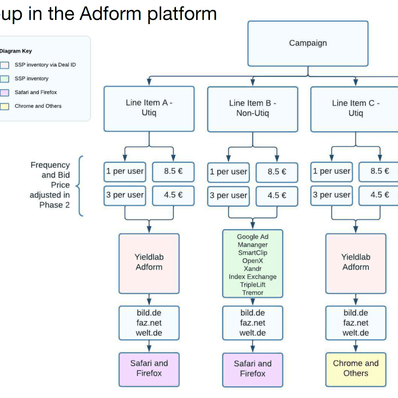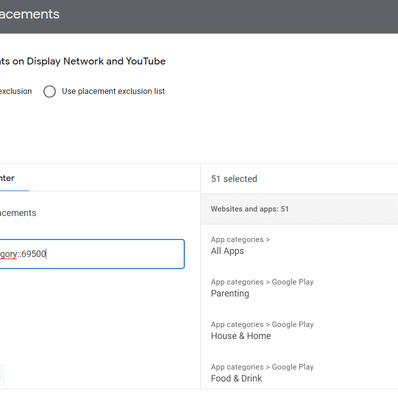Increase RTB Spend, Help Democracy
Teads has published a study explaining Why Funding Quality Journalism Isn’t Just Good for Democracy - It’s Good for Business.
I like Teads. I really do. But what the hell is this? It seems like another variation on the "we need to increase our profits, so let's bundle our pleas with a cause" tune.

I don't understand market research on a professional level. There are much brighter minds for that. However, I understand how and why news releases are made.
Here's what I find odd (and strangely infuriating) about this piece of commercial communication coming from an ad tech giant I otherwise respect.
Effect Conflation
Before we jump into the analysis, here's a bit of context. Advertisers have been turning up their brand safety high, so their brands aren't associated with inflammatory or polarising content. Teads would like them to change that.
Spot the Fallacy
The central argument of the study and the news release goes like this.
- Quality content is found in the politics, climate, foreign policy, and economics sections of media outlets.
- The advertisers should run more ads in those sections.
- By doing that, the advertisers will get more attention AND will support quality journalism.
- More attention is good for brands. Quality journalism is great for democracy. Win-win.
As my mate Marty likes to say, "definition is everything". When you think of quality journalism, you think of well-researched and impeccably sourced, often long form, pieces. They focus on analysis and providing context. The central tenet of democracy is to have an informed electorate. High quality content is a must-have.
Media Reality
What you usually find in the politics sections of the media outlets are episodic pieces that focus on the latest scoop from the campaign trail or treat the politics as a horse race. Pundits in the economics sections gladly predict the inevitable fall of S&P 500 for the 47th time this month. Space dedicated to either interesting ideas or proper analysis has been severely diminished in favour of information that incites emotion.
Emotional articles garner attention. Obviously. By advertising in the hard news sections, advertisers will largely contribute to bottom line growth of ad tech firms. Yet, they won't support democracy and quality journalism.
Improving the quality of journalism requires:
- investing in well-researched content that's going to uplift the electorate;
- increasing the headcount and skill of fact checking teams;
- relieving the pressure to deliver clickbait articles at breakneck speeds;
- giving reporters more time to deliver.
Ad revenue boost delivers none of this directly and only very little indirectly.
Thought Experiment
Let's say advertisers suddenly increase their spend in hard news sections. Articles focusing on the political horse races and economic doomsaying suddenly become profitable.
What do you think is going to happen? The publisher is going to look at the numbers and incentivise the reporters to write more articles like those. Where is the positive social effect?
Mathematica Obscura
When you look into the original slides of the study, you'll see it's based on a sample of 900 people.
I could argue that to represent a 250 million population, you need at least 1,068 respondents. That is when you want to get to the 95th percentile of confidence and keep the margin of error down to 3%. 100-200 extra people in the sample wouldn't hurt.
What bothers me is that you don't see metrics like margin of error or confidence interval in the study. If you want to make it rigorous, go all in.
If you are interested in sample size calculation, check out this article. For other nerdy stats about market research turn to the lads at response:AI.
Source Credibility
Look at all the third party sources who are quoted in relation to the news and democracy. There's an ad sales person, an advertising agency bloke and a market research firm CEO. Why not have someone from the Center for Media and Democracy or PEW Research give a quote for the study?
Imagine someone relevant reads the article and gets inspired to increase ad spend in high-quality news articles. They then have to sell that idea to the C-suite. It's way better to have your research conclusions backed up with both industry experts as well as independent third parties. Help your target audience help you.
Last Words
Before our firm gets banned from the Teads Ads Manager due to "unforeseen circumstances", let me say this.
Yes, there are worse firms in the ad tech space. Way worse. The reason why I'm picking on Teads is that I think they can and should do better.
Their ads ecosystem is sound and contains high-quality ad placements. The firm has made billions over the last couple of years.
If they want to support high-quality journalism, they should do it. If they want to increase their yield, great. Just don't conflate the two.
Shameless self-promotion
If you want to run RTB campaigns, get in touch.
Rumor has it that we have some knowledge in that field.
Response within 24 hours guaranteed.

Managing Director
Honza Felt is a performance marketing specialist who turned into a marketing consultant after a mysterious accident. He spends his days leading a bunch of misfits at CF Agency. Drinks rum and knows things.



